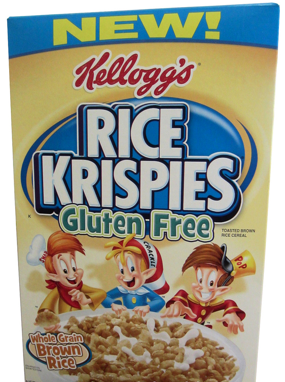The Gluten-Free Trend: Healthy or Harmful?

In 2000, the conversation about celiac and eating gluten free was still in its early stages (many people had lived decades feeling ill, but doctors often misdiagnosed the source of their ailments), and it was still an alien concept to the general public. My diagnosis threw my parents into a state of panic. They made phone calls to obscure, foreign food companies, placing orders from what we now consider the pioneers in producing gluten free products. However, at the time, the products were astronomically expensive, and tasted a lot like sawdust.
In 2013, during my first month living in L.A., I found myself at a charming, boutique restaurant in Manhattan Beach. When we sat down to order, I asked the waitress about gluten free-options.
"Now, is that an allergy, or a preference?" She chirped, and promptly handed me a revised menu with the heading "Gluten Free." I was initially confused: why would anyone choose to follow this restrictive diet if it wasn't necessary?
Since moving to L.A., this is an interaction that I have become accustomed to. It seems that the diet-obsessed Los Angelinos are buying into the "gluten-free glamour." Perhaps they do so for health reasons, or to simply follow a new fad.
However, these trendy SoCal eaters are missing some crucial information about the effects of a gluten-free diet on a non-celiac person. Here are some ill-considered reasons why people go gluten-free:
1) "I really want to lose ten pounds."
Perhaps this is the most popular reason that non-celiacs are suddenly deciding to adopt a gluten-free lifestyle. Particularly in Los Angeles, where everyone between the ages of zero and 50 is perpetually preoccupied with sporting their best bikini figure, many food decisions are made with the aspiration of weight loss. It is true that if their diets consist of only "whole foods," which are foods that naturally do not contain any gluten (fruits, vegetables, protein), weight loss is likely inevitable. However, many gluten-free eaters substitute foods like bread and pasta for rice products, which can actually have the opposite effect on a person's weight.
Further, now that grocery stores like Whole Foods and Trader Joe's are lining their shelves with popular gluten free brands like Glutino and Udi's, it can be enticing for the gluten-free fad followers to pick up a box of rice crackers or gluten-free pasta and feel like their sticking with the lighter option. However, many of these products actually contain more calories and more fat content than their gluten counterparts.
2) "I'm not putting those toxins into my body!"
There have been multiple occasions in which I've informed peers that I eat gluten-free and their responses have been, "Oh, I tried that last month! How do you like it?" When I inquired about their decisions, they explained that they wanted to free their bodies of the "toxins" in gluten products like bread and pasta. It's a valid ambition, and if health-seekers are embarking on some version of the Paleo diet, then perhaps they might be closer to their goals.
However, the truth is that, if a person's digestive system is intolerant to gluten (like mine and others with celiac), eating gluten free products is more nutritious and beneficial to his or her health. In contrast, a diet solely comprised of gluten free products by choice is actually unhealthy for a person's body, and can lead to a deficiency in important nutrients and vitamins found in common gluten-containing grains. In reality, it's more toxic for someone to adopt a gluten free diet who does not have to, than to simply continue eating standard breads and pastas.
3) "I heard it improves digestive health."
This is 100% true for people with celiac disease. I was diagnosed because I was experiencing severe stomach pain and could not properly absorb nutrients. Once I eliminated gluten from my diet, my digestive system was finally able to properly process foods, resulting in the overall restoration of my digestive health.
The media has attached a negative connotation to gluten, which has led people to blame foods like bread for their digestive woes. But these woes can actually be exacerbated by a rice-based diet (the source of many gluten free products). It is actually more likely that a gluten-free lifestyle will negatively impact digestion.
READ ALSO: It's Not All About Pasta: Gluten-Free Meal Replacers
Our society goes through diet crazes. In the 90's, we embarked on an anti-fat rampage. In the current age, we've declared war against gluten. The diet is fresh. It is fashionable. It has the promise of possibility. But it is important, before eliminating gluten from your diet, to be well informed about its effects and consequences.
Learn more about celiac disease and gluten free diets here.
Reach Senior Culture Editor Emily Mae Czachor here.



